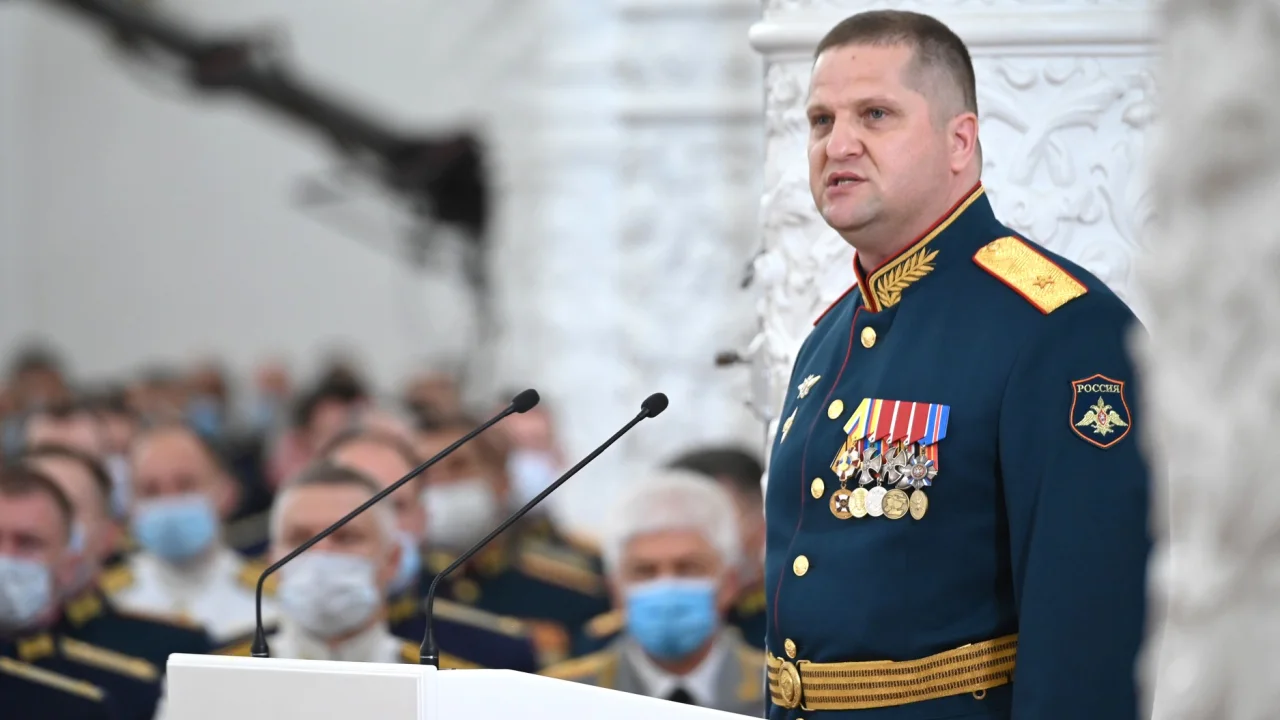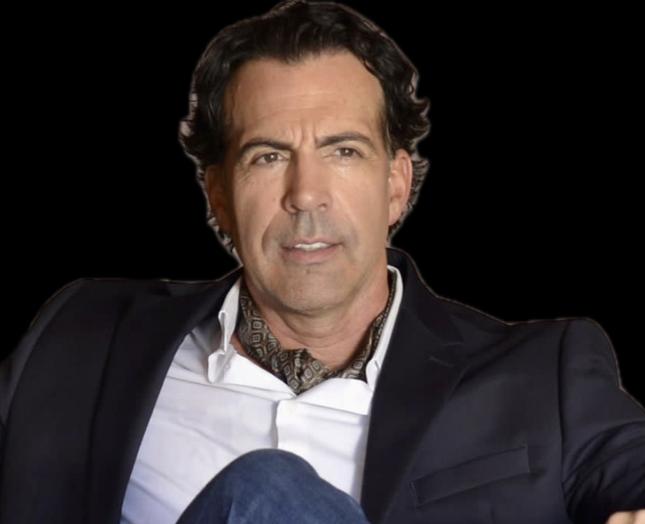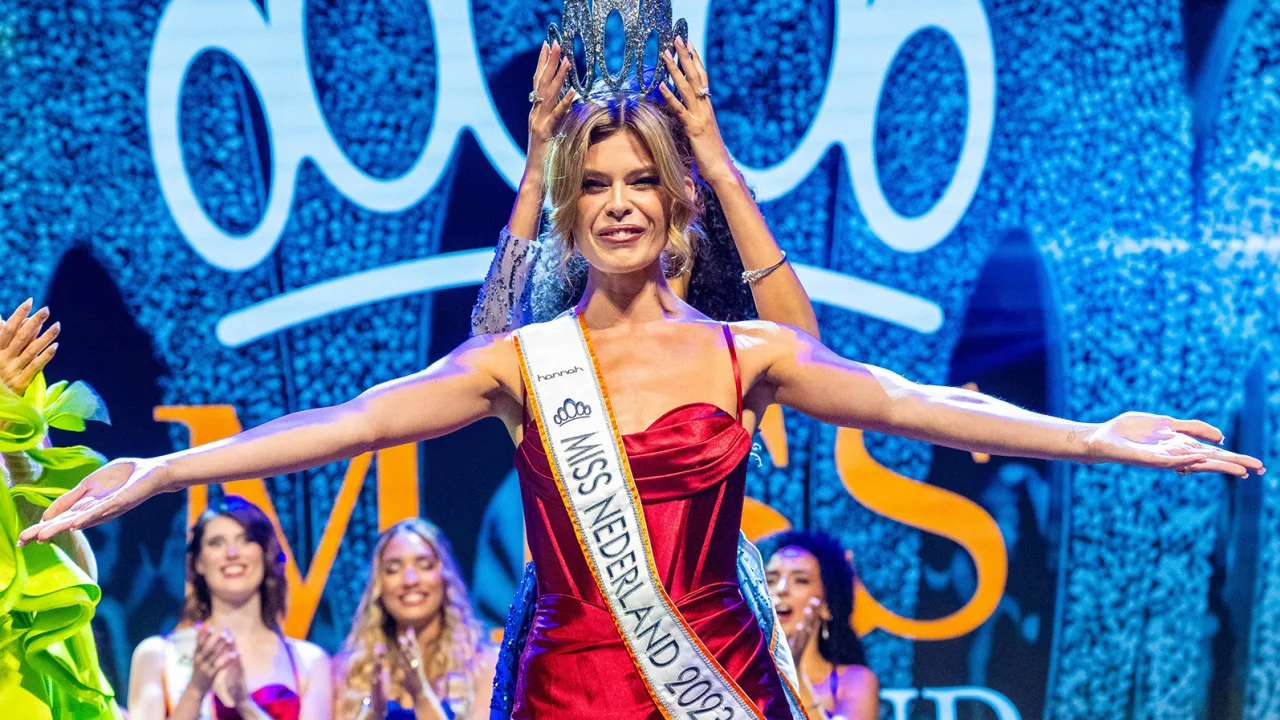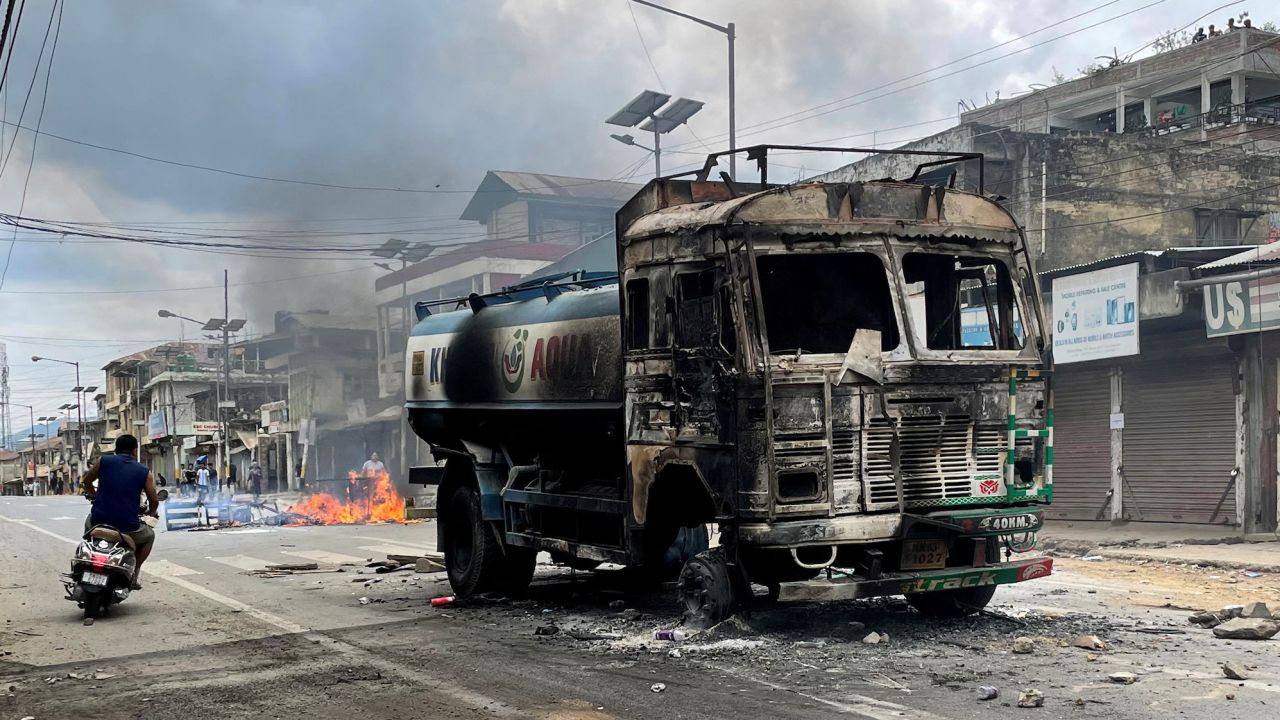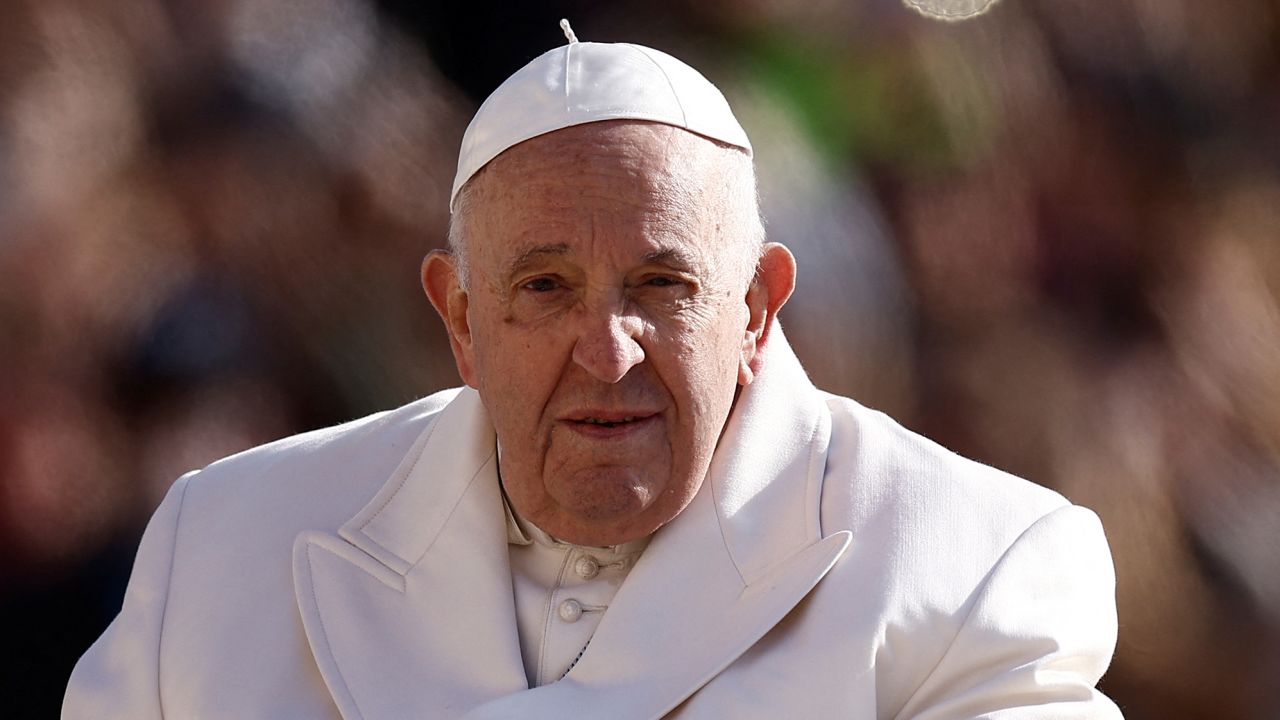To lose one general during a war that’s going badly might be seen as unfortunate; to lose two within 24 hours looks careless. But that is what’s happened to the Russian command in southern Ukraine – and the two cases illustrate further deficiencies and dissent among Russia’s military leadership.
Early Tuesday, a Ukrainian missile slammed into a hotel in the coastal town of Berdyansk that had been taken over by the Russian military.
One of many reported Russian casualties was Lieutenant General Oleg Tsokov, the deputy commander of the Southern Military District and a key figure in Russia’s defense of occupied areas of southern Ukraine. He is thought to have been the most senior among the roughly 10 Russian generals killed in the campaign in Ukraine to date.
It appears to have been no secret that the 58th Combined Arms Army had made the Dune hotel its headquarters – but Tsokov had nevertheless moved in. And that after being badly wounded last fall in a Ukrainian strike near Svatove.
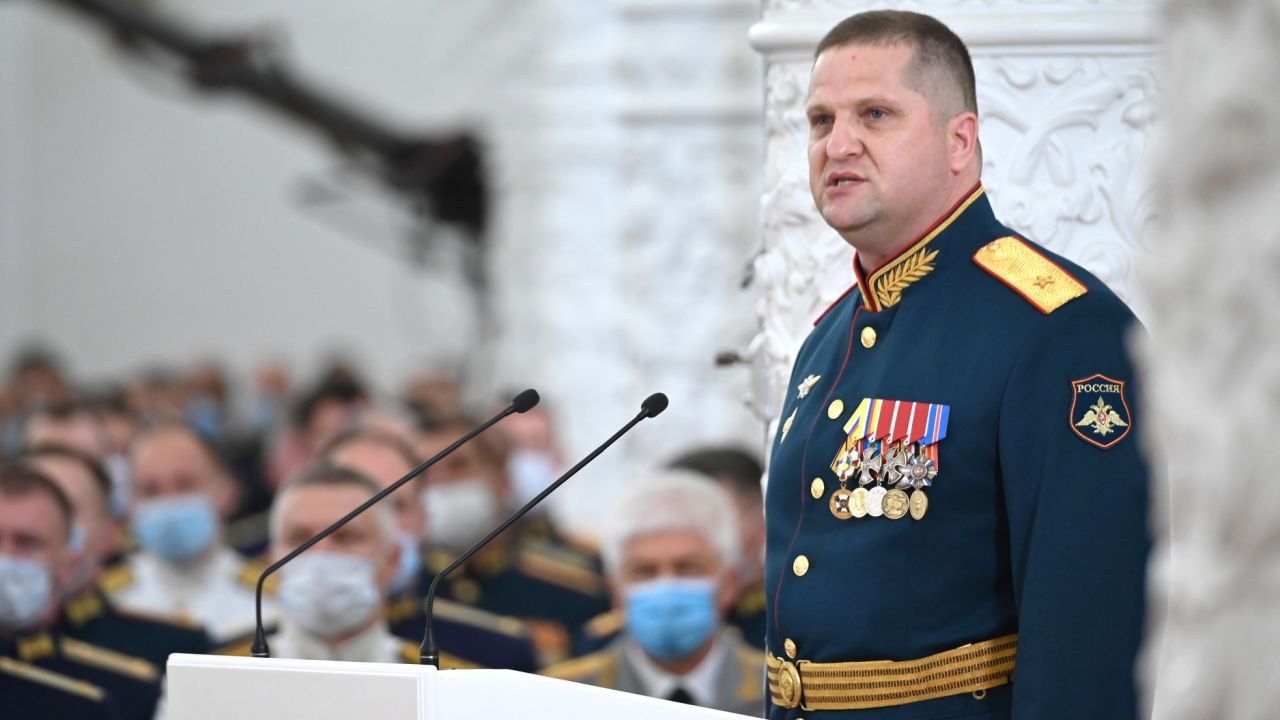
Lieutenant General Oleg Tsokov is thought to have been the most senior among the roughly 10 Russian generals killed in the campaign in Ukraine to date.Kremlin Press Office
The 58th is a critical component in defending frontlines in western Zaporizhzhia region, where Ukrainian forces are attempting a breakthrough in their counter-offensive.
But there was worse, much worse, to come.
Ad Feedback
Late Wednesday, a four-minute audio message emerged from Major-General Ivan Popov, the 58th’s commander, in which he railed against what he called the treachery of Russia’s military leadership and inadequacies causing mass casualties among his men.
His message asserted major shortcomings in Russian defenses, which the Ukrainians are clearly trying to worsen with a recalibrated approach that stresses long-range fires against Russian rear positions.
Popov said he had raised questions about “the lack of counter-battery fires,” the absence of artillery reconnaissance stations and the mass deaths and injuries of our brothers from enemy artillery. I also raised a number of other problems and expressed it all at the highest level.”
Popov’s complaints, according to the Institute for the Study of War, may expose important problems for the Russians – that they “lack operational reserves that would allow them to carry out rotations of personnel defending against Ukrainian counteroffensives, and that Russian defensive lines may be brittle.”
But Popov wasn’t done. He went on with what appears to have been a bitter attack on the Russian military’s chief-of-staff, Valery Gerasimov.
“The armed forces of Ukraine could not break through our army from the front, [but] our senior commander hit us from the rear, treacherously and vilely decapitating the army at the most difficult and tense moment.”
He included Minister of Defense Sergei Shoigu in his diatribe. “Apparently, the senior commanders felt the danger in me and swiftly, in one day, concocted an order for the Minister of Defense, removed me from the order, and got rid of me,” he said.
‘Colossal support’
Russian military bloggers have suggested that both Tsokov and Popov were capable soldiers who inspired loyalty among their men. Tsokov, 51, appears to have been a rising star in the Russian military. In 2021 he addressed a ceremony at the Kremlin attended by President Vladimir Putin for military cadets.
Military blogger Rybar noted in a long commentary that “Popov enjoys colossal support from the personnel: the fighters on the front line were greatly demoralized by the news about the dismissal of the ‘simple’ and ‘clear’ honest General Popov.”
Popov’s last remarks as commander were indeed dedicated to his troops. “Good night, my beloved gladiators, beloved relatives, one family,” he said. “I am always available to you. It is an honor for me to stand with you in the same ranks.”
Losing commanders who inspire loyalty is not only careless. It’s potentially hazardous.
And it’s not as though the travails of the 58th are isolated examples. The Wagner mutiny at the end of June called into question the effectiveness and allegiance of several high-ranking figures, several of whom have not been seen since.
As the mutiny unfolded, General Oleg Surovikin, head of Russia’s Aerospace Forces, appeared in a video looking somewhat disheveled and appealing to Wagner boss Yevgeny Prigozhin to stop his revolt. Surovikin had been on good terms with Prigozhin, who had expressed his admiration for the general.
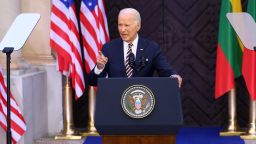
Biden can leave Vilnius feeling like he got almost everything he wanted from the NATO summit
Indeed, it was Surovikin who organized an orderly withdrawal from Kherson last November, earning praise for doing so, after being appointed the head of Russian forces in Ukraine.
But then he was replaced in January. And he has not been seen since the Wagner mutiny unfolded. Amid intense speculation about his status, the Head of the State Duma Committee on Defense Andrei Kartapolov said Wednesday that he was “resting” and not available – a curious place to be in the middle of a war that’s not going well. The Kremlin has deflected questions about Surovikin to the Defense Ministry.
On Thursday Kartapolov found himself answering more questions, this time about Popov.
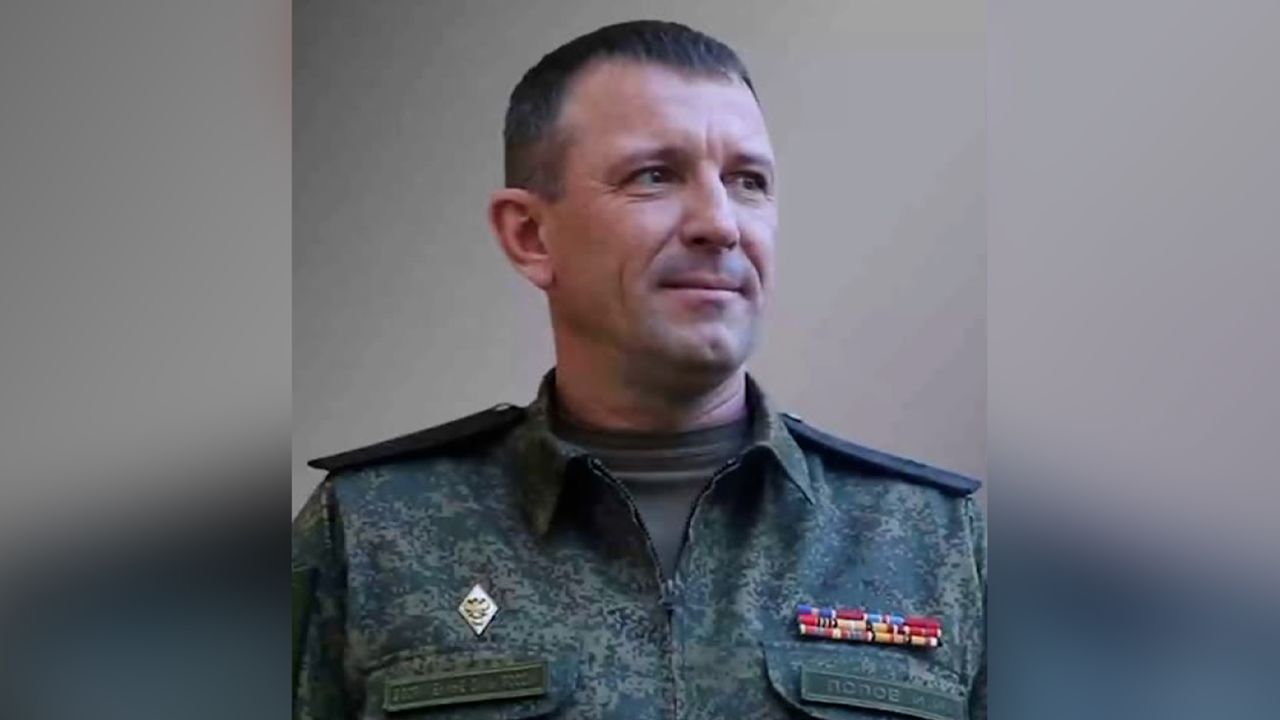
Senior Russian general, Ivan Popov, raised questions about the mass deaths and injuries of Russian military personnel.Teoyaomiquu/Twitter
“I’m sure they will resolve [the problems],” he said. “Popov should serve in the army. He is a promising general. He has everything ahead of him. ” (Kartapolov once commanded the 58th Combined Arms Army himself.)
But Kartapolov also had what might be seen as a veiled message for the Defense Ministry, adding on Telegram: “The most important skill of any boss is the ability to see problems and hear his subordinates. Therefore, I think that those who are supposed to do this have heard, seen and will take action.”
Uncertainty and confusion
The ecosphere of Russian military bloggers is less reticent.
Not for the first time, they have raised the specter that the hierarchy is wallowing in a settling of scores. One of the most prominent bloggers, Rybar, says Popov’s fate is illustrative of a “witch hunt” that began after the Prigozhin mutiny.
One unofficial outlet – VChK-OGPU – said Wednesday that a “war” within the Ministry of Defense continues. It claimed it was Gerasimov who demanded Popov’s removal, accusing him of “alarmism and blackmailing the leadership.”
VChK-OGPU alleged that Popov had threatened to go direct to President Vladimir Putin with his protest – and that Gerasimov then “removed him from his post and sent him to the front lines.”
Popov’s whereabouts are unknown.
Amid all the uncertainty and confusion, the Defense Ministry maintains a monastic silence. No word on Tsokov two days after he was killed; no damage limitation on Popov’s dramatic dismissal. No comment on the whereabouts of Surovikin.
What the Defense Ministry does offer, when its leadership is questioned, are well-choreographed appearances by minister Shoigu, and the normally invisible Gerasimov. Soon after the mutiny, Shoigu was seen on a tour of inspection somewhere in Ukraine (though exactly when the video was shot remains open to question.)
As rumors swirled about Surovikin, Gerasimov was seen prominently on a conference call with Surovikin’s deputy: a show of being in charge and maybe a hint that Surovikin has fallen from grace.
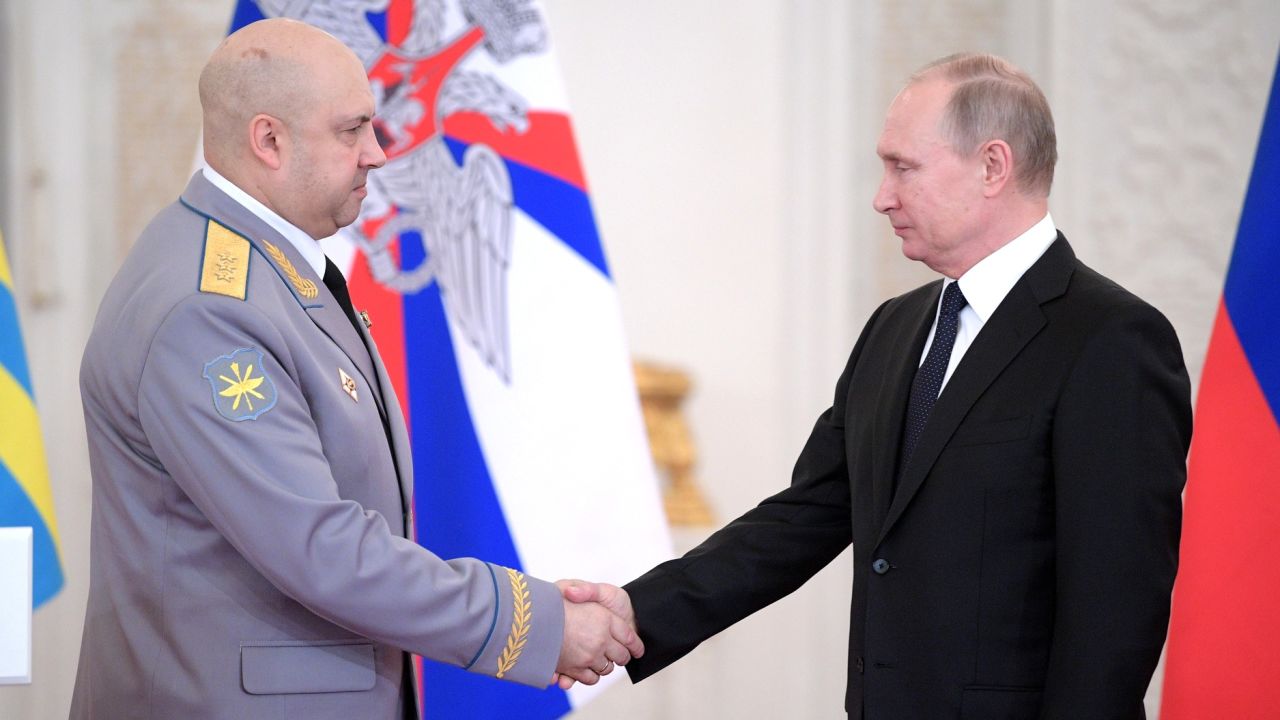
Vladimir Putin meets with Surovik during a meeting in the St. George Hall of the Grand Kremlin Palace in 2017.President of Russia
Dara Massicot, an expert on the Russian military at RAND Corporation, said at the time: “The choice to only highlight a fairly dull VKS [air and space forces] update, given the rumors swirling about Surovikin’s status, is most likely deliberate.”
Tweeting on July 10, Massicot added: “The ‘everything is fine, I’m a fine defense minister’ road show continues, Shoigu this weekend visiting a training range all of a sudden.”
The blogger Rybar echoes that theme, saying Wednesday “It is very difficult to deny the fact that now the leadership of the Russian Ministry of Defense is based mainly on positive reports, which should interrupt the negative.”
Rybar then delivers a final thought. “The conflict between Popov and Gerasimov highlights the main thing: the lack of unity in the Russian Armed Forces. And the enemy will surely take advantage of this. … And, of course, Russia will suffer from this. And this is the saddest thing.”
Western experts say that a culture of petty rivalries, in part driven by endemic corruption, permeates the Defense Ministry and many echelons of the armed forces, despite the pressing needs of the campaign in Ukraine.
There are also serial accounts of incompetence and cruelty among senior commanders. One example: the fiasco of an assault on the town of Vuhledar in January, the second disaster over which the same commander presided.
Last year there was the chaotic attempt to bridge a river in eastern Ukraine that ended with the loss of most of a battalion tactical group.
And then there is the surreal Prigozhin saga. As his mutiny kicked off, The Wagner leader upbraided (on video) two very senior military officials, and also made it clear his goal was the dismissal of Shoigu and Gerasimov, whom he viscerally loathed.
Five days later, according to the Kremlin, Prigozhin and his senior commanders held a three-hour meeting with President Putin (who had equated the mutiny with treason) to discuss their issues. The phrase “mixed signals” comes to mind.
Any military campaign will suffer setbacks and confusion. But the Russian invasion of Ukraine has rarely been distinguished by agile generalship or coherent leadership.
The loss of more capable commanders is another sign that Russia’s “special military operation” is looking less special by the week.

